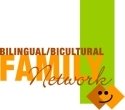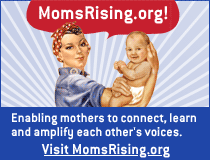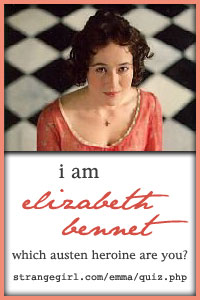My friend Kateri's latest post, though, brought up an idea that I hadn't thought about before. I had only kind of suspected it subrepetitiously under some of the feminist works I'd read. But let me backtrack to give you the context of her diatribe.
~~ ~ ~ ~
Kateri is a birth-mother, an extremely articulate birth-mother (go read her archives if you want to be deeply moved) and I have learned so much from her experience (as well as from Dawn on the other side of the coin as an adoptive mother in an open adoption). A while back Kateri blogged about Juno (if you read her post, do read Cecily's also), and then last week she was interviewed in a Chicago Tribune article about Juno and birthmothers. The comments to this article were deeply troubling to her (I didn't read them because I didn't want to be angry), and then, the hate mail started pouring in... and it was in her post about the hate mail that Kate made a comment that got me thinking... (she wrote another shorter post to follow up).
~ ~ ~ ~ ~ ~
Kateri first wrote that feminism has turned its back on birth-mothers, then, she, who has been thinking for a while now of writing a book about her experience, wondered if this book would matter to anyone outside of adoption (and Kate apologized for her "myspace syntax" here):
i'm not sure what i'm trying to say, exactly. there's this missing piece, this leap i haven't made. it has something to do with the question- "why does Juno find motherhood so unappealing?" why did i, at the time? why is that the obvious, foregone conclusion? what's wrong with motherhood? i know all the answers: school! freedom! your own life! blah blah blah.(bolding mine)
. . .
there is this underlying belief that the best mother is one who martyrs herself and kills her own dreams.
. . .
the assum[p]tion of this belief as fact is what keeps us from looking at the state of motherhood in the culture.
And she ends by questioning why we cannot accept, celebrate even, motherhood in teenage girls.
My comment to her post was:
Hmmm, I think you're getting at the heart of the problem here: "the state of motherhood in the culture." Motherhood doesn't really matter much, does it? Do the feminists really talk about it? They don't! They talk about choice, but it's mostly regarding "choosing work," not having kids and caring for them -- that would be "the old way" or something... It's really sad that motherhood is seen as a stumbling block for everything in life. Is there ever a good time to be a mother? Never, I think!! It's tough on those who work, tough for those in graduate school like me... it's not that different from the situation of a teenager, it's just that women in other situations have accomplished a bit more. Even these older women have to give up on her dreams (e.g. getting a Ph.D.) to become moms... no matter the age, the financial situation, there are always "setbacks."Then, in a short conversation with Dawn here about how Kateri should frame her book, Dawn wrote that "she should position the book as a feminist manifesto," but now I'm thinking that perhaps it's going to be a manifesto challenging the feminists for abandoning mothers.I say proudly to people that I'm taking 10 long years to get my Ph.D. because I gave birth to two sons in the meantime, but sometimes I wonder if taking this long to finish will not just have killed my chances in academia (there's a great book about this that's coming out soon, Mama, Ph.D.), but I digress... What can we do, though, if being a mother is just so unacceptable to so many "institutional settings" (like academia, corporate America, etc).
DIGRESSION: I should be working on my dissertation and I was, but I came write this post because I found a quotation precisely about these issues and just had to come here write this post.
In an endnote of this book, the Brazilian scholar Renata Wasserman summarizes very neatly how the feminists have rejected motherhood.
Julia Kristeva explains that since " we live in a civilization where the consecrated . . . representation of femininity is absorbed by motherhood," and "this motherhood is the fantasy that is nurtured by the adult . . . of a lost territory" the representation of which is "an idealization of primary narcissism," feminism [at least French feminism, I guess] tends to "identify motherhood with that idealized misconception and, because it rejects the image and its misuse," it ends up rejecting motherhood altoghether ("Stabat Mater, " in The Kristeva Reader . . . 160-86, 161).Sad, huh? Note: comment about French feminism above is mine.
My dear friends, feminists, scholars or not, out there, please tell me... what is your perspective on this issue? Has feminism summarily rejected motherhood? What are we to do, if, like Kateri argues, so many deep set beliefs "keep us from looking at the state of motherhood in the culture?" and not only that, but stigmatize young mothers to the point that they simply dismiss motherhood and suffer lifelong consequences...
Edited to add: I'll be back in the comment section this time because I'm hoping we can talk more about this (very loaded) subject.












